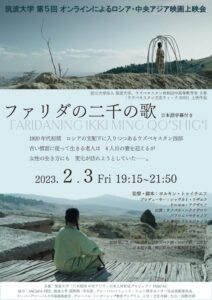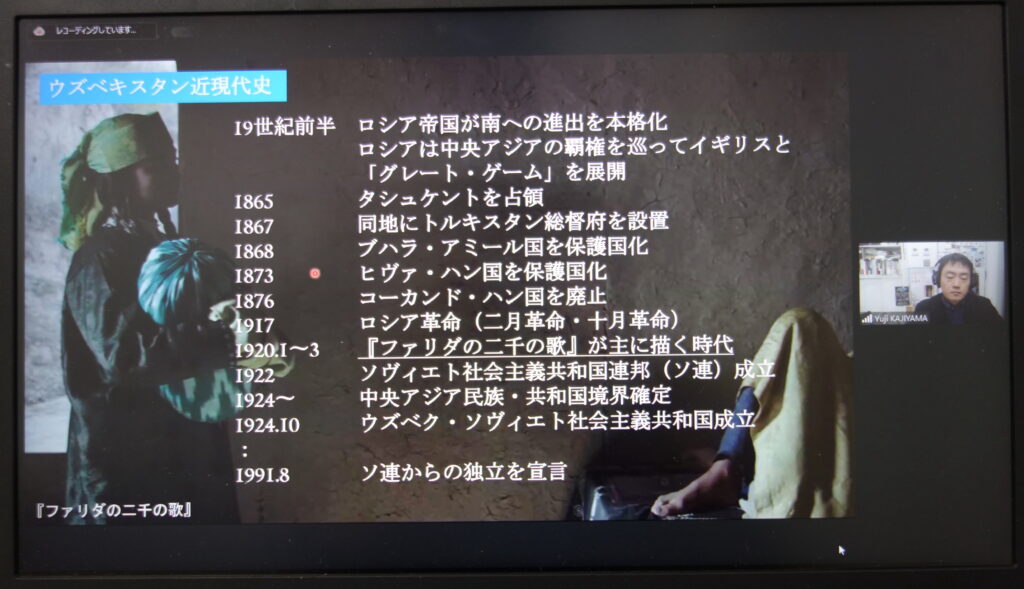On Friday, February 3, 2023, the 5th online screening of Russian and Central Asian films took place. This edition showcased the film “Two Thousand Songs of Farida” (2020), directed by Yolkin Tuichiev. The film, which has garnered attention as Uzbekistan’s latest cinematic offering, has been featured in numerous international film festivals. Its debut in Japan occurred on September 30, 2022, at Nova Hall (Tsukuba City, Ibaraki Prefecture) during the “Japan-Uzbekistan Academic and Cultural Forum.” This event, jointly organized by the University of Tsukuba and the Ministry of Intermediate and Higher Education of Uzbekistan, commemorated the 30th anniversary of diplomatic relations between Japan and Uzbekistan. 
Due to a surge in requests following last year’s screening, we organizedthe 5th online screening to make the film accessible to a wider audience.
As usual, Dr. Yuji Kajiyama, the coordinator of the NipCA project, provided an advance commentary titled “New Film Trends in Contemporary Uzbekistan” before the screening. Uzbekistan, a longstanding leader in Central Asian film culture, has seen a flourishing of new filmmakers and the production of unique films, especially focusing on women’s lives. Despite limited opportunities for exposure in Japan, Dr. Kajiyama introduced several noteworthy works, including Ayub Shakhobiddinov’s “Heavenly Woman” (2012), and Saodat Ismailova’s “40 Days of Silence” (2014), and “Her Rights” (2020). These films, along with others, depict women’s lives in Central Asia, particularly in Uzbekistan. Notably, Ismailova’s “Her Five Lives” (2020) is an outstanding short film categorizing the lives of women in Uzbekistan over the past century (from the 1920s to the present).
Although Tuichiev, the director of the featured films, hasn’t extensively explored the theme of women’s lives in his works, he stands as a contemporary standard-bearer for Uzbek cinema. “Two Thousand Songs of Farida” unfolds in western Uzbekistan in the early 1920s, shortly after the Bolshevik regime took power, and depicts the shifting and changing lives of a husband and his plural wives, who lived together in a traditional polygamous relationship amidst the increasing Sovietization of society. In the post-screening survey, there were quite a few comments about the film’s visual beauty, accompanied by numerous questions about the second half of the film, which takes a sharp turn. Requests for further explanations were made, and these inquiries will be addressed in a report following the next screening.
The NipCA project remains committed to organizing film screenings in Central Asia and beyond.




